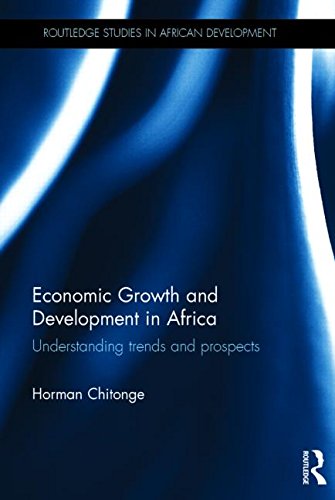

Most ebook files are in PDF format, so you can easily read them using various software such as Foxit Reader or directly on the Google Chrome browser.
Some ebook files are released by publishers in other formats such as .awz, .mobi, .epub, .fb2, etc. You may need to install specific software to read these formats on mobile/PC, such as Calibre.
Please read the tutorial at this link. https://ebooknice.com/page/post?id=faq
We offer FREE conversion to the popular formats you request; however, this may take some time. Therefore, right after payment, please email us, and we will try to provide the service as quickly as possible.
For some exceptional file formats or broken links (if any), please refrain from opening any disputes. Instead, email us first, and we will try to assist within a maximum of 6 hours.
EbookNice Team

Status:
Available4.4
29 reviewsIn recent years, Africa has undergone the longest period of sustained economic growth in the continent’s history, drawing the attention of the international media and academics alike. This book analyses the Africa Rising narrative from multidisciplinary perspectives, offering a critical assessment of the explanations given for the poor economic growth and development performance in Africa prior to the millennium and the dramatic shift towards the new Africa.
Bringing in perspectives from African intellectuals and scholars, many of whom have previously been overlooked in this debate, the book examines the construction of Africa’s economic growth and development portraits over the years. It looks at two institutions that play a vital role in African development, providing a detailed explanation of how the World Bank and the IMF have interpreted and dealt with the African challenges and experiences. The insightful analysis reveals that if Africa is rising, only 20-30 per cent of Africans are aboard the rising ship, and the main challenge facing the continent today is to bring on board the majority of Africans who have been excluded from growth.
This book makes the complex, and sometimes confusing debates on Africa’s economic growth experience more accessible to a wide range of readers interested in the Africa story. It is essential reading for students and researchers in African Studies, and will be of great interest to scholars in Development Studies, Political Economy, and Development Economics.